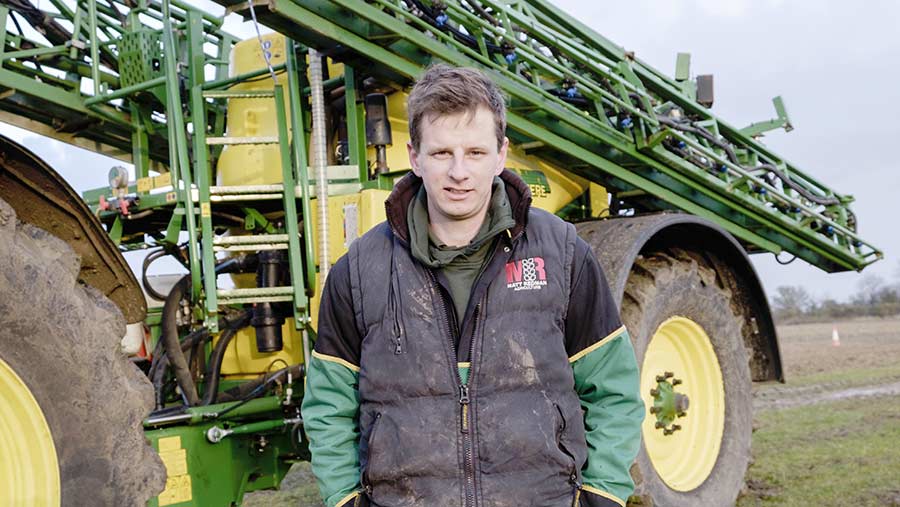Farmer Focus: Still waiting for mid-tier stewardship payment
 © Jason Bye
© Jason Bye I am approaching my third harvest in Cambridgeshire. In the two-and-a-half years farming here I experienced one of the wettest autumns for a long time, and also one of the driest spring-to-harvest periods. So the question is, is that 2018, 2019 or this year?
Late February and March-drilled wheat is at present defying expectations. It’s certainly not perfect, but I’m happy we managed to get as much in as we did. March-drilled spring wheats are also looking good and seem to have coped with the tricky establishment conditions better than the spring barley.
See also: New varieties and prices spark biscuit wheat revival
Sugar beet is providing me with a baptism of fire in its first year – establishment has been slow and germination rate extremely varied due to the dry conditions.
Luckily I split the overall area over three farms, with three soil types, so I have very good, and very poor fields. Plant numbers are there, but sizes differ massively.
Hopefully, they will all catch up and come autumn time it won’t be the disaster it looked like it might be a few weeks ago.
Attention is now turning to establishing the AB9 wild bird seed plots as part of my mid-tier countryside stewardship scheme. I always find this an enjoyable job even though it takes a lot longer than it should because it is very different from the usual.
It usually shows results fast with a multitude of different plant species testing plant identification skills, and it’s nice knowing it will have a positive impact on the farm later in the year. What I’m not keen on is the delay in payment for the mid-tier work.
My agreement started on 1 January 2019, and I’ve incurred the costs of establishing all of the areas of pollen and nectar, grass margins and wild bird feed, along with the additional supplementary feed on time as required and in some cases re-drilling due to poor establishment during the dry spring or wet autumn last year.
But up to last week, there is no sign of any payment and now only a bridging payment for part of the overall amount.
I don’t believe going into the scheme is a bad idea, because it is a fairly safe bet that you will get paid, and it brings so many benefits to the farm by providing a way of generating an income from awkward corners, or less productive areas and enabling a payment for buffer zones as well as providing for wildlife.
But delayed payments help no one; you can’t budget for something you don’t know when it will arrive – on time, or months/years late. Let us hope this issue is top of the items to be addressed with the new ELM scheme.
Matt Redman farms 370ha just north of Cambridge and operates a contracting business specialising in spraying and direct drilling. He also grows cereals on a small area of tenancy land and was Farm Sprayer Operator of the Year in 2014. Read more from Matt Redman.

